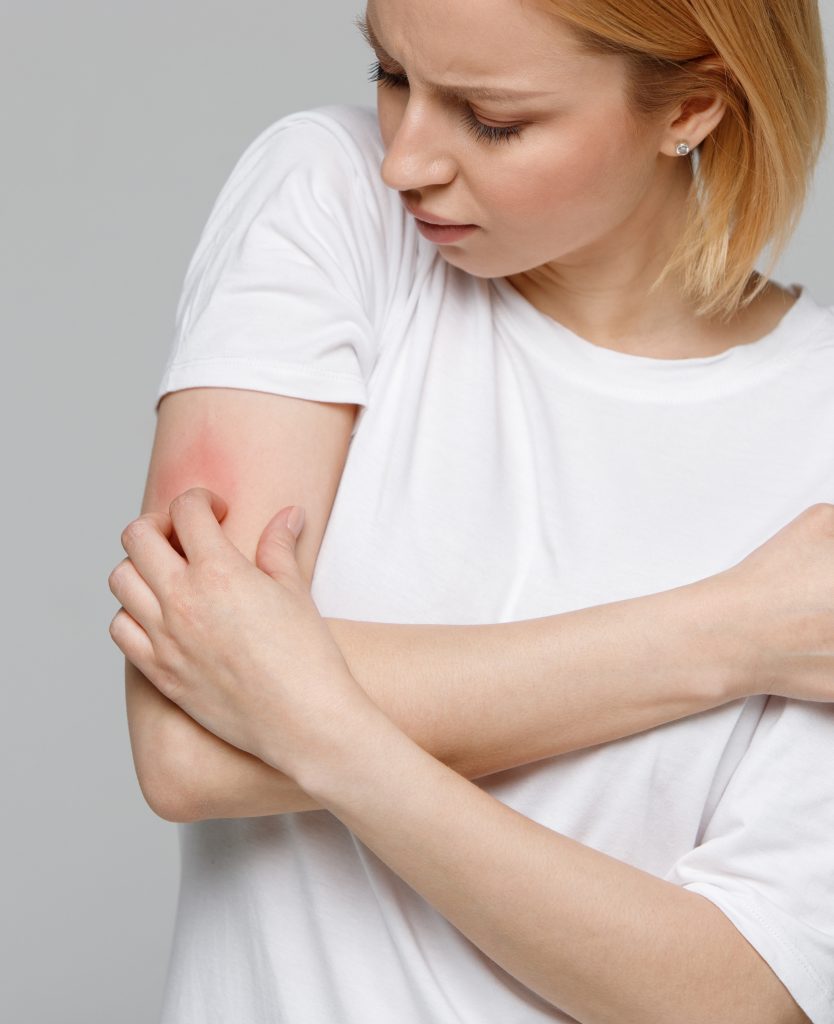If you are in doubt about your child’s food allergies make an appointment to see Andrew Marlowe, MD ENT. A food allergy occurs when the immune system mistakenly targets a harmless food protein (an allergen) as a threat and attacks, releasing histamine and other chemicals that trigger an allergic reaction. According to the Food Allergy Research & Education (FARE) organization, 15 million people in the United States are affected with food allergies, including one in 13 children.
Living With Food Allergies?
Almost every food is capable of inducing an allergic reaction. Below are the most common food allergies:
- Peanut
- Tree nuts
- Milk
- Egg
- Wheat
- Soy
- Fish
- Shellfish
Allergic Reactions to Food
Allergies are mostly inherited. A child has a higher chance of developing certain food allergies if one or both parents have them. Often, a child can be allergic to the same food(s) as their parents. Children with other allergic conditions such as eczema or asthma are more likely to have food allergies than children who do not have other allergic conditions. Your child may have this condition if symptoms develop within two hours of eating certain foods.
Mild Allergy Symptoms:
- Hives (reddish, swollen, itchy areas on or beneath the skin).
- Eczema (a persistent dry, itchy rash).
- Redness of the skin (around the eyes).
- Stomach pain, diarrhea, nausea or vomiting.
- Nasal congestion, runny nose, sneezing, sore throat and coughing.
- Odd taste in mouth.

Severe Allergy Symptoms:
- Obstructive swelling of the lips, tongue or throat.
- Chest pain, shortness of breath or trouble swallowing.
- Turning blue, drop in blood pressure.
- Feeling faint, confused, loss of consciousness.
Some children suffer from anaphylaxis, a severe anaphylactic (allergic) reaction, requiring immediate treatment. Reactions can occur within minutes to two hours after contact and can range from mild to severe.
Diagnosis & Treatment of Food Allergies
Understanding the diagnosis of food allergies is important to you and your child’s health. The following steps may help determine whether you or your child have a food allergy. Feel free to consult with us at our conveniently located Sarasota office, and never attempt testing food(s) if your child has had a severe or anaphylactic reaction.
- Journal foods and symptoms. When your child has an allergic reaction to food, write down what was eaten, symptoms and how long symptoms occurred. Keep track of symptoms and see if any correlation took place with the food eaten and symptoms that occurred. Symptoms can vary. Anaphylactic reactions can be triggered by even small amounts of foods.
- Stop eating suspected foods. Have your child stop eating the suspected food(s) for one to two weeks and record any symptoms that still occur. Most children improve within a week of the eliminated food.
- Confirm. Remember to always consult with your physician before trying to reintroduce foods and never attempt if your child has had a severe or anaphylactic reaction to food(s).
Treatment and Resources:
- Test. Skin prick tests or a blood test may also be used by your child’s physician to help figure out what food your child is allergic to. The tests are especially helpful for severe food reactions.
- Avoid allergens. This should keep your child free of symptoms. Speak to your doctor about eating foods your child is allergic to if your child is still breastfeeding. Food allergens can be absorbed from your diet and enter the breast milk.
- Benadryl. If hives, itching or mild symptoms occur, use Benadryl with correct dosage based on your child’s weight. Consult with your physician to make sure your child can take Benadryl and how much your child should be taking.
- Supplement missing vitamins. Eliminating foods due to allergens could cause an imbalance in nutrition if a major food group is eliminated. Make sure your child is getting nutrients from vitamins or other supplements. Consult with your physician or a nutritionist for more information.
- Resources and planning. FARE is a national resource organization that can help with any food allergy questions. The Student Action Plan by AIRE Nebraska is also a great resource and guideline for dealing with a child’s asthma and allergies at school. Once diagnosed, it is important to create an emergency plan with your physician for your child.
- Epinephrine. If your child has a severe allergic reaction to allergens, your physician may prescribe Epinephrine. Carry an injectable epinephrine with you at all times. Make sure that child care providers and school staff know that your child has a severe food allergy, and what to do if he or she has a reaction. The emergency plan created with your physician/The Student Action Plan by AIRE Nebraska will help explain information to providers.
At least half of children who develop a food allergy during the first year of life outgrow the allergens by the time they are 2 or 3 years old. Some reactions to food such as milk or soy are more often outgrown than others like peanuts, tree nuts and seafood, which can last a lifetime.
Treating Food Allergies In Sarasota, Florida
Allergies can be very dangerous and in some cases, potentially fatal. If you suspect that you or your child may have an allergy, we urge you to contact our center and get the allergy testing needed. To learn more about the services offered by Drs. Marlowe & Houle, request a consultation by calling (941) 379-3277 or selecting and filling out the appropriate form below.

